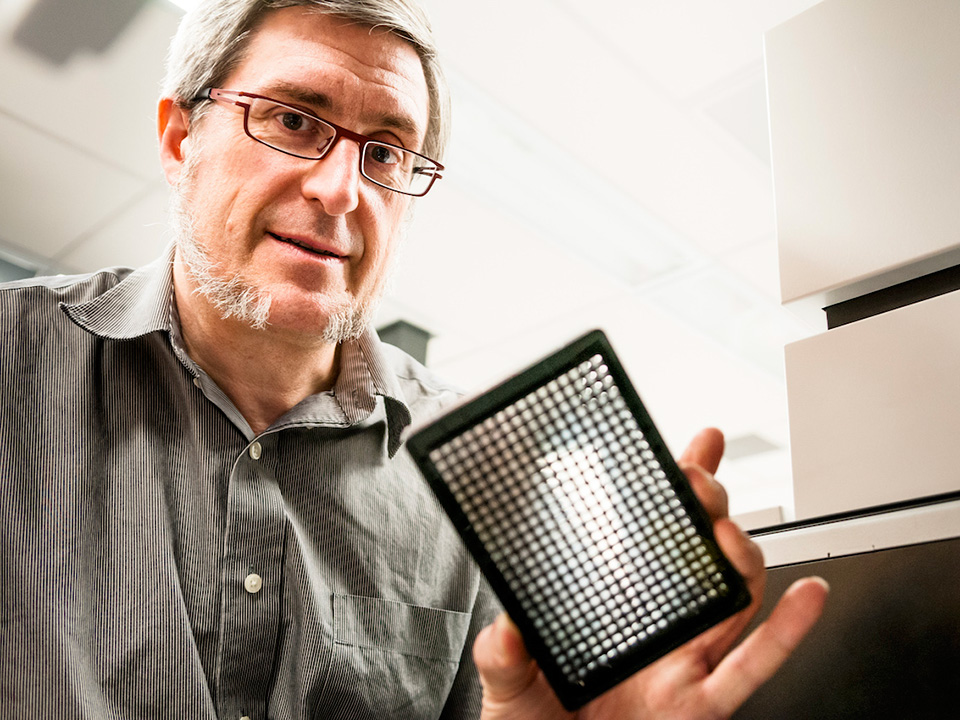Tool kit: the Opera
By Eleni Kanavas
The wonder of automation is here at Sunnybrook Research Institute (SRI) with PerkinElmer's Opera system, a spinning disc confocal microscope that produces high-resolution microscope images at fast speed.
Located in the HiCCA lab (short for high-content cellular analysis) on M7, in SRI's Centre for Research in Image-Guided Therapeutics, the Opera is a fully automated high-content screening system that can take more than 100,000 images of cells a day, working 24-7 without any supervision. This allows researchers to use fluorescence microscopy quantitatively rather than having to spend hours looking through the microscope eyepieces and interpreting what they see intuitively.
"It allows for more work to be done with less effort on the side of the researcher," says Jarkko Ylanko, a research technician in the lab of Dr. David Andrews, director of Biological Sciences at SRI. "You hit go, come back in an hour and get tons of information for downstream analysis."
What makes the Opera at SRI unique is its ability to do fluorescence lifetime imaging microscopy (FLIM), a technique that measures how long a fluorescent molecule is excited when light hits it. PerkinElmer built the FLIM Opera specifically for Andrews to study how proteins interact with each other and function in membranes, especially during apoptosis, or programmed cell death.
The Opera is the only high-content screening system in Canada that has FLIM capability, which is the most accurate way to measure protein-protein interactions in live cells. Sunnybrook Research Institute is the only academic research institution in North America to have one.
While a traditional microscope allows a researcher to look at a handful of cells on a glass slide every few minutes, the Opera condenses the experiment into a multiwell plate of 384 samples, all in a footprint the size of an envelope.
"You set up the Opera to read the entire plate or some sections and suddenly you're able to collect multiple images from hundreds of different conditions," says Ylanko. "This would be physically impossible for a person [to do]."
The Opera is worth $2 million, and was purchased with funding from the Canada Foundation for Innovation and Ontario Ministry of Research and Innovation. PerkinElmer has sold three more FLIM Opera systems worldwide.



